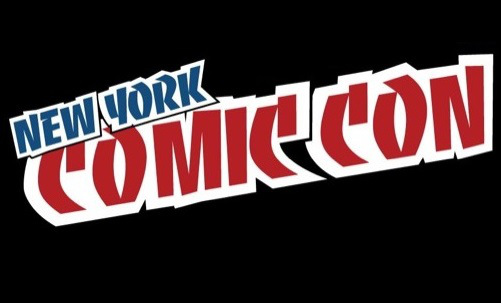Figuring how to combat harassment and bullying was at the forefront of many attendees’ minds this year at New York Comic Con—partly because of the past couple of months have been pretty abuse-heavy for many people in online geek circles, but also (we hope!) because of the new and much more comprehensive harassment policy ReedPOP unveiled earlier this month.
But harassment, unfortunately, isn’t just something that can be magicked away with a series of giant signs; it takes everyone on an individual level working together to ensure that a community is safe for all its members. Here’s how two sets of panelists from that weekend think you should go about doing just that.
Waiting for the End Bullying panel to start! Check out @heruniverse‘s Black Widow sweatshirt pic.twitter.com/wLemkTpwiq
— Victoria McSpoopy (@vqnerdballs) October 10, 2014
First up on the docket was “End Bullying! Responding to Cruelty in Our Culture,” which took place in the surprisingly spacious 1A21 room on Friday afternoon and was moderated by the two founders of the Pop Culture Anti-Bullying Coalition: Chase Masterson, who played Leeta in Star Trek: Deep Space Nine; and Carrie Goldman, author of the 2013 book Bullied: What Every Parent, Teacher, and Kid Needs to Know About Ending the Cycle of Fear (you also might remember her viral blog post about her own daughter Katie’s experiences with being bullied for liking Star Wars way back in 2010).
Panelists included Ashley Eckstein of Her Universe and Star Wars: The Clone Wars; Impractical Jokers cast member Joe Gatto; The Hero Round Table founders Adam Hartly and Matt Langdon; Anti-Defamation League Director Eva Vega-Olds; and professor of forensic psychology Dr. Travis Langley (who you might also recognize from Legends of the Knight, the Batman documentary that our own Editor-in-Chief Jill Pantozzi is also featured in).
Goldman started the panel off by noting how important it was that such a conversation was even taking place at New York Comic Con, especially when you take into account how much the geek community tends to gravitate so strongly towards a fascination with stories. The characters and worlds that we love so much, she said, remind us of what real life is supposed to be.
Ashley Eckstein is no stranger to this concept, of course, as Her Universe isn’t just a website for sci-fi merchandise—it has also become its own online community of fans. Both kids and adults, she mentioned, feel much safer online when they receive support from their peers, which can be represented in something as simple as an easy Facebook Like. “Positive comments are powerful,” she said, and can be incredibly impactful to the people they’re directed towards.
Joe Gatto agreed, saying that it’s “so easy for the Internet to be owned by haters.” Back in junior high, he told the crowd, he used to rely on humor as his defense mechanism of choice against bullies, but maintains now that the onus should not have been on him to learn how to cope with bullying in the first place; it should be on, as Gatto put it, the dickheads to change their behavior instead. “If you know a bully, they’re a dick,” he joked. “If you are a bully, you’re a dick.”
But as Adam Hartley pointed out, statistics show that expensive anti-bullying programs in schools don’t work—they just gives parents and adults an opportunity to pat themselves on the back. Instead he suggests “pro-hero” campaigns, which reward participants for being proactive about standing up to bullies, rather than shaming the bullies for their actions. Piggybacking off of this, Matt Langdon noted that people who are used to being singled out can often become better at standing up. Naturally there’s risk involved, but Langdon believes that “there are no heroes without risk.”
Another way to stop bullying is to examine the way that the unconscious biases that children inherit from society work against certain groups of people based on their identity, Eva Vega-Olds added. These biases can lead to prejudice, which leads to discrimination, which then leads to hate—a bit more nuanced than the standard fear/anger/hate/suffering analogy that we all know and love, but much more important because of it.
Bringing it back full circle to Goldman’s point about how much we identify with stories, Dr. Langley talked about how he uses narratives and fiction in teaching his forensic science students about the the worst aspects of human nature. When you’re talking about a real-life example of a child who witnesses his parents’ murder, he pointed out, people turn away; but when you talk about Batman instead, they’re much more responsive. To that end, stories can become a safe environment in which to both teach and share very personal and even upsetting experiences.
There wasn’t much time for questions at the end of the panel, but it was clear that the forty-five minute discussion had been a very intense and emotional experience for those who did get the chance to speak up at the end. But of course, the conversation wasn’t over yet.
>>> Next Page: “#YesAllGeeks: Let’s Talk About Harassment in Fandom”









Published: Oct 15, 2014 08:00 pm